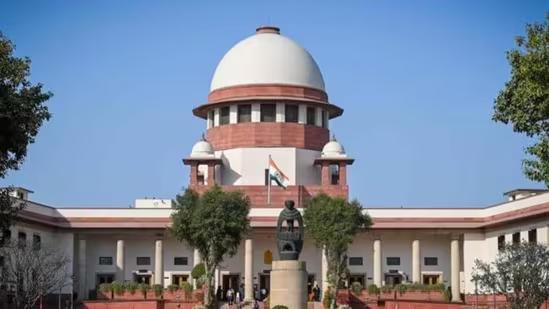
Court Can’t Grant Assent to Bills, Only Governor & President Can: Maharashtra to SC
In a significant development that has far-reaching implications for the functioning of the Indian parliamentary system, the Maharashtra government has argued in the Supreme Court that courts cannot accord assent to bills and only the Governor and President have the power to do so. This assertion was made by senior advocate Harish Salve, representing the Maharashtra government, during a hearing on a presidential reference regarding the court’s authority to impose timelines on the Governor and President to deal with bills passed by state assemblies.
The hearing was in response to a presidential reference filed by the Centre, seeking the Supreme Court’s opinion on whether the court could impose timelines on the Governor and President to act on bills passed by state assemblies. The reference was filed in the backdrop of a growing trend where state assemblies are passing bills that are then sent to the Governor or President for assent, only to be delayed or rejected without any clear timeline for action.
Maharashtra’s argument was that the power to accord assent to bills lies solely with the Governor and President, as enshrined in the Constitution. According to Article 111 of the Constitution, every bill passed by the Parliament or a state legislature must receive the assent of the President before it can become a law. Similarly, Article 200 of the Constitution provides that every bill passed by a state legislature must receive the assent of the Governor before it can become a law.
Salve, representing the Maharashtra government, argued that the court cannot usurp the powers of the Governor and President by imposing timelines on them to act on bills. He contended that the court’s role is limited to interpreting the Constitution and ensuring that the powers of the Governor and President are exercised in accordance with the Constitution, rather than attempting to dictate their actions.
The Maharashtra government’s argument is supported by several Supreme Court judgments, including the landmark judgment in the case of S.P. Sampath Kumar v. Union of India (1987), where the court held that the Governor’s role in the legislative process is limited to giving assent or withholding assent to bills, and that the court cannot intervene in the decision-making process of the Governor.
In the present case, the Maharashtra government is seeking the Supreme Court’s clarification on the scope of the Governor’s powers in relation to bills passed by the state legislature. The government has argued that the Governor’s role is not limited to mere formalities, such as signing or vetoing bills, but also involves exercising discretion in deciding whether to give assent to bills that may be unconstitutional or contrary to the public interest.
The Maharashtra government’s argument has significant implications for the functioning of the Indian parliamentary system. If the court were to impose timelines on the Governor and President to act on bills, it could potentially undermine the constitutional safeguards enshrined in Articles 111 and 200, and create a situation where the court becomes involved in the legislative process.
Moreover, such a development could also lead to a constitutional crisis, as it could create a situation where the court is at odds with the executive and legislative branches of government. In such a scenario, the independence of the judiciary could be compromised, and the court’s ability to interpret the Constitution and ensure the rule of law could be undermined.
In conclusion, the Maharashtra government’s argument that courts cannot grant assent to bills and only the Governor and President have that power is a crucial aspect of the functioning of the Indian parliamentary system. The court’s role is limited to interpreting the Constitution and ensuring that the powers of the Governor and President are exercised in accordance with the Constitution, rather than attempting to dictate their actions. The outcome of this case will have significant implications for the functioning of the Indian parliamentary system and the balance of powers between the three branches of government.






